5 Essential Skills to FLOURISH in Christ (Part 2)
To FLOURISH in Christ, you must understand and practise these essential steps!

You will see and hear on many church platforms the WORD God has given to His Children this year all over the World: Thrive in Christ, Maturity of the Saints, being true mature sons of God, Reform & Revival, Holiness & the Fear of the Lord. This emphasis is not new, but it is the NOW Word for His Body, as NOW the God of peace Himself sanctify you completely; and may your whole spirit, soul, and body be preserved blameless at the coming of our Lord Jesus Christ. (1 Thes 5:23)
Of course, the Holy Spirit is leading us to sharpen and upskill many skills to be ready to fulfil His work right now. The Lord is prompting me to review and reflect upon these five right now.
The central passage for consideration is 1 John 2:1-15.
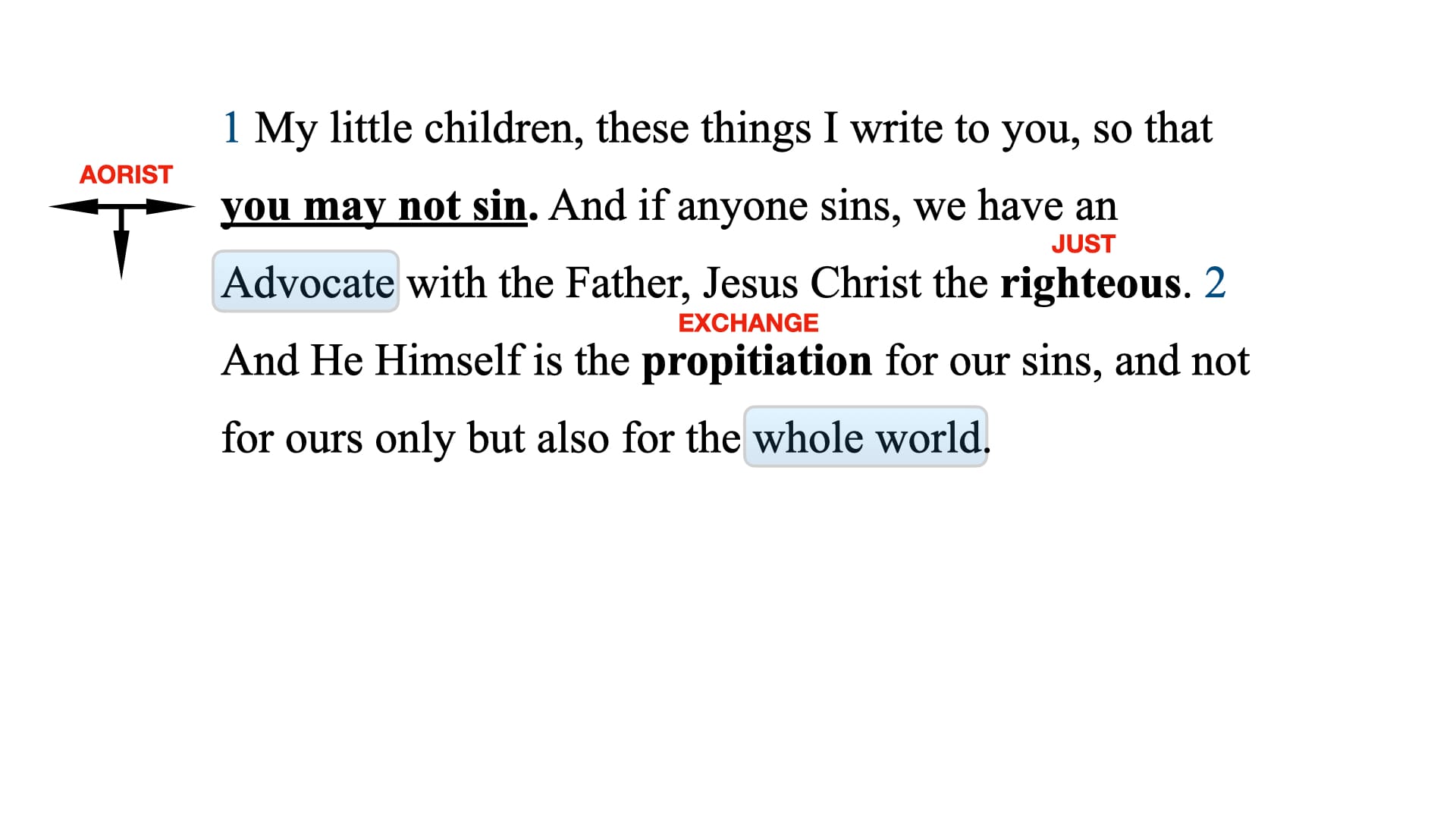
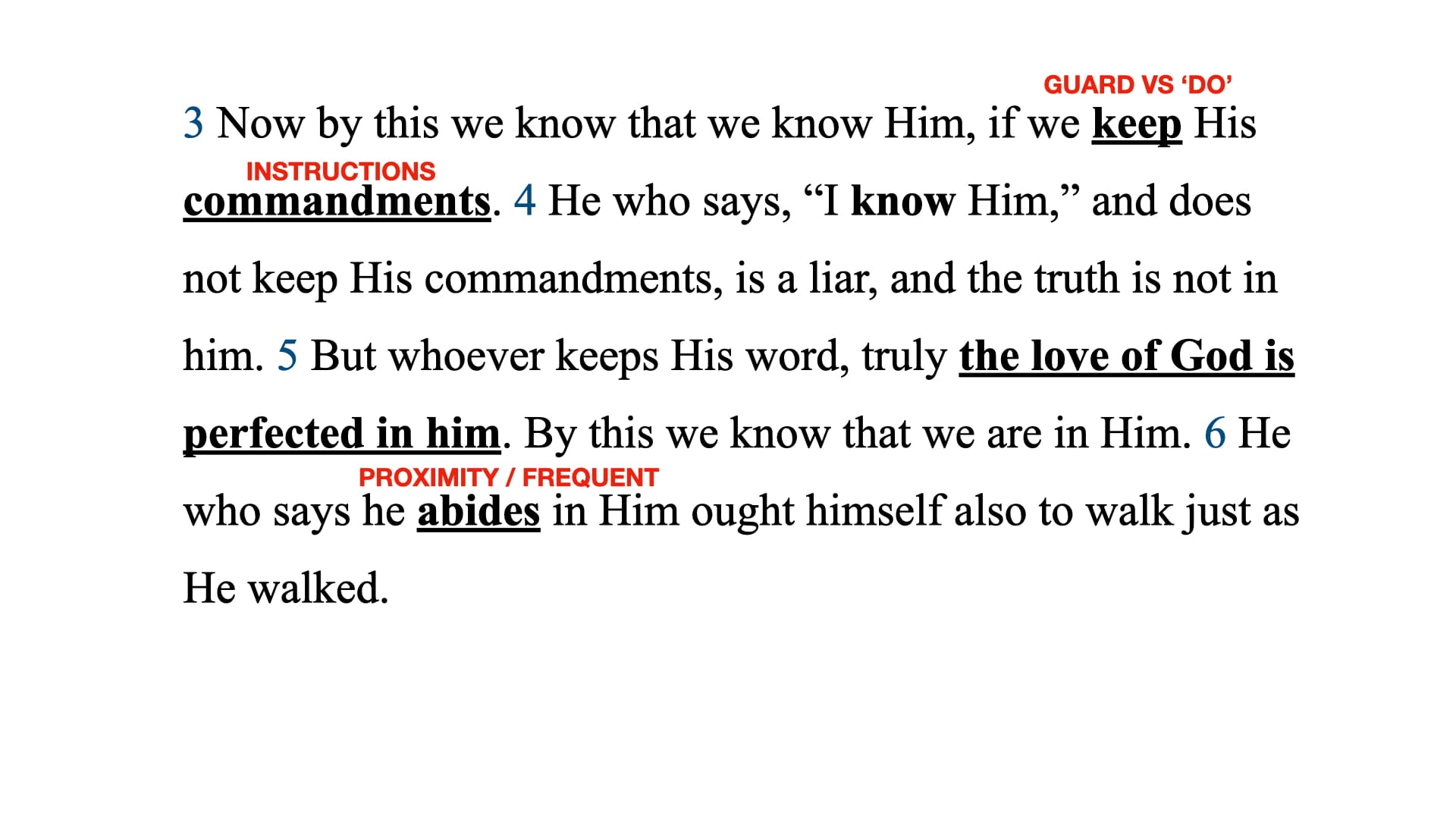
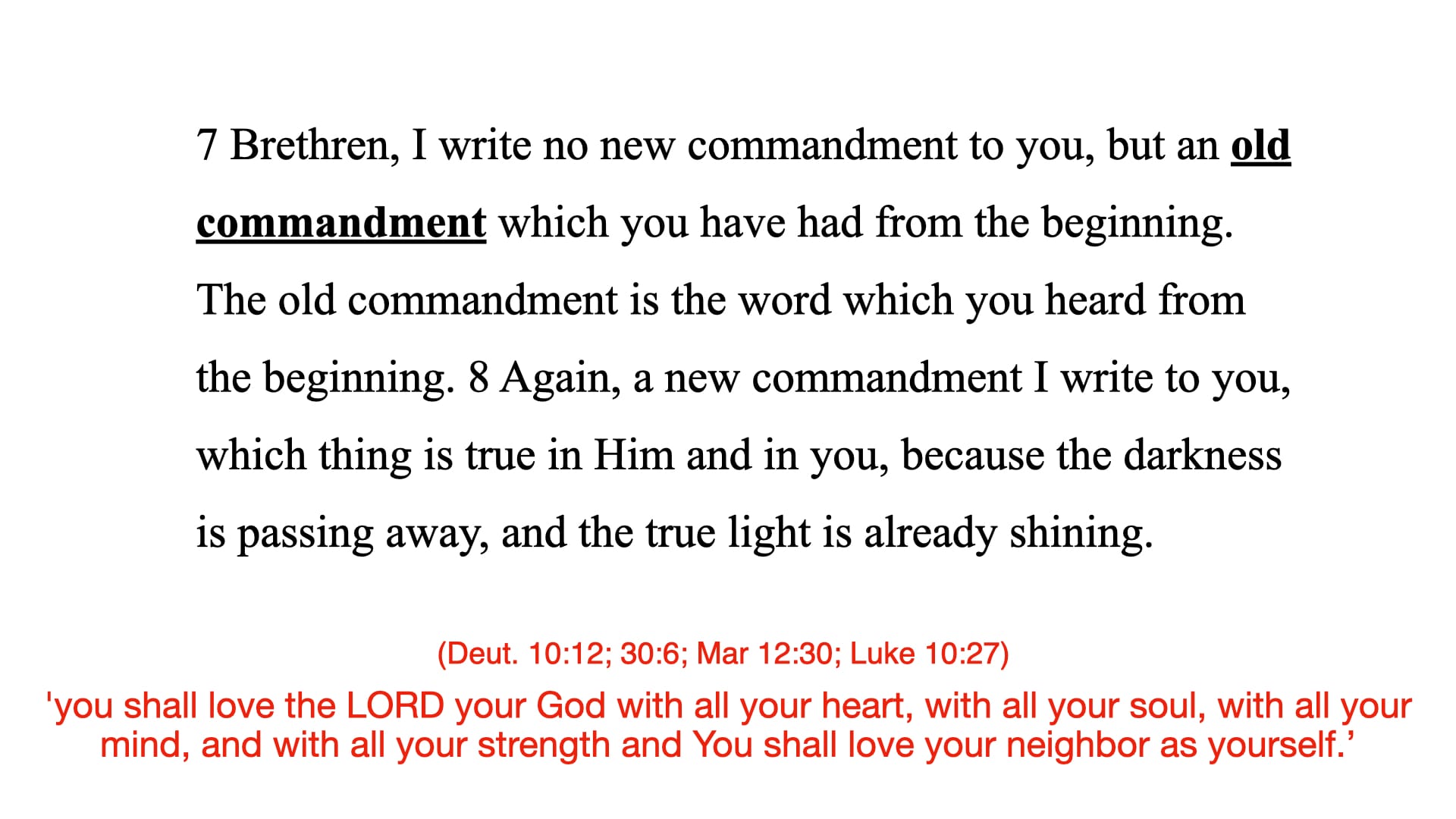
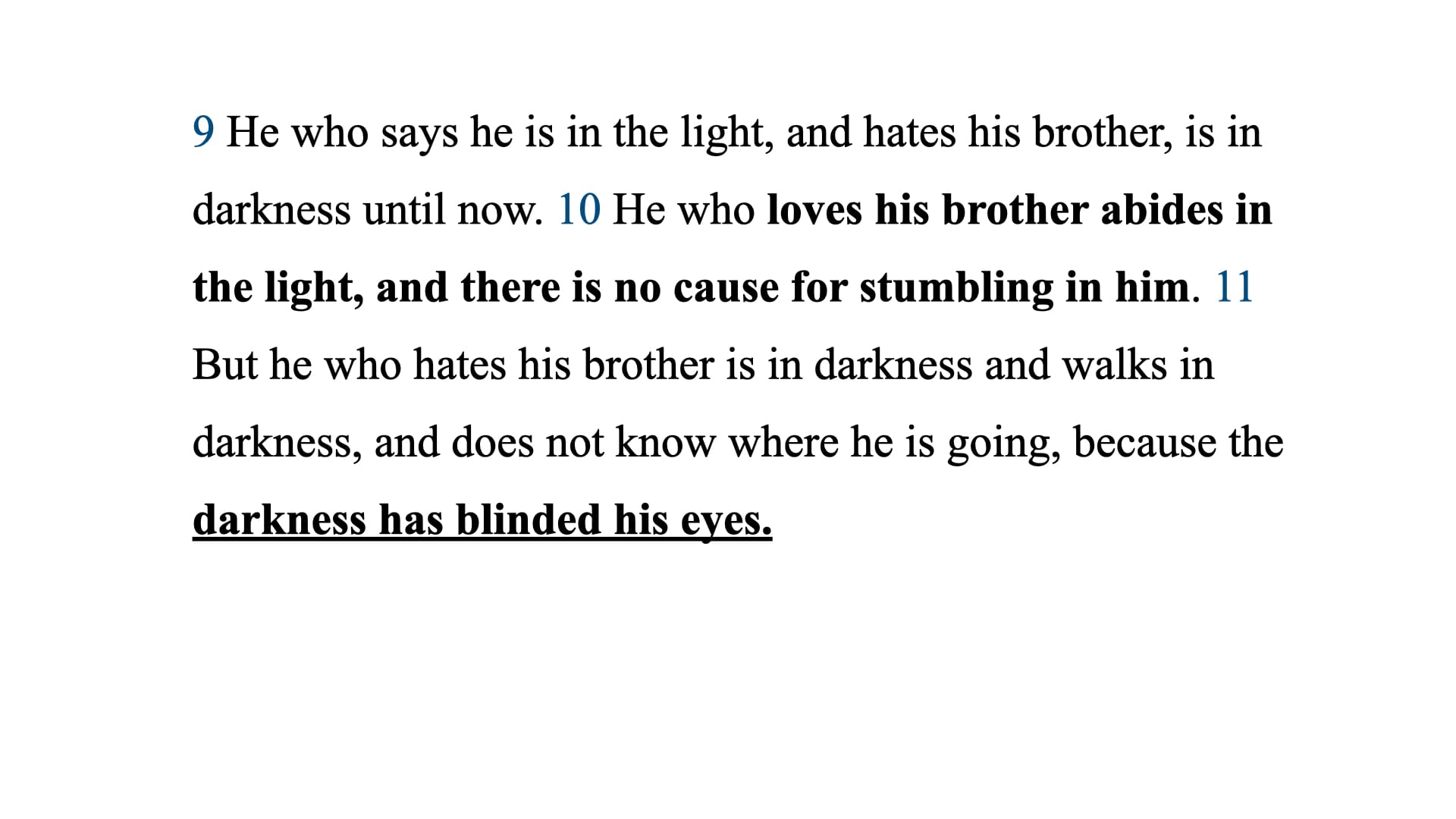
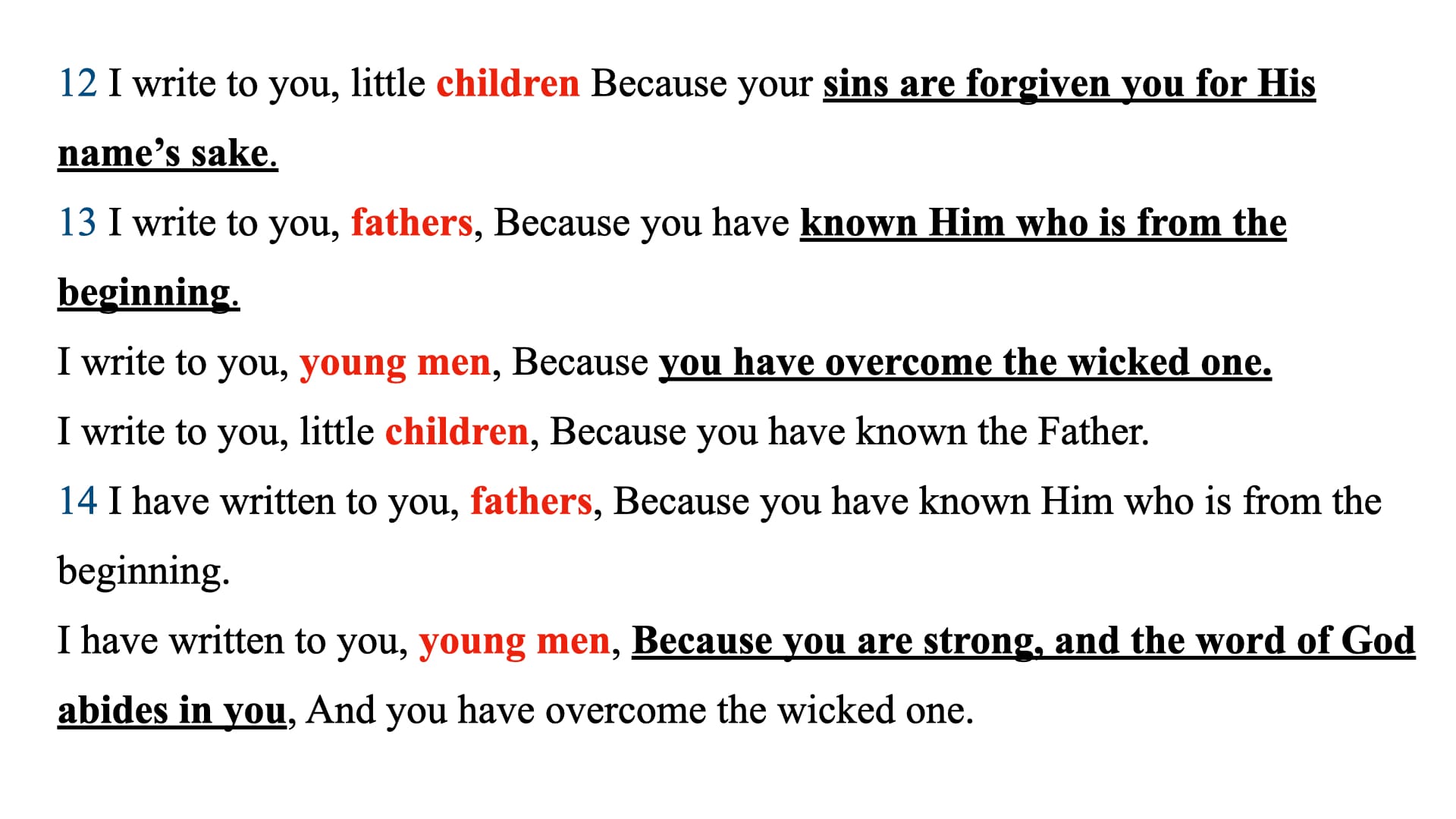
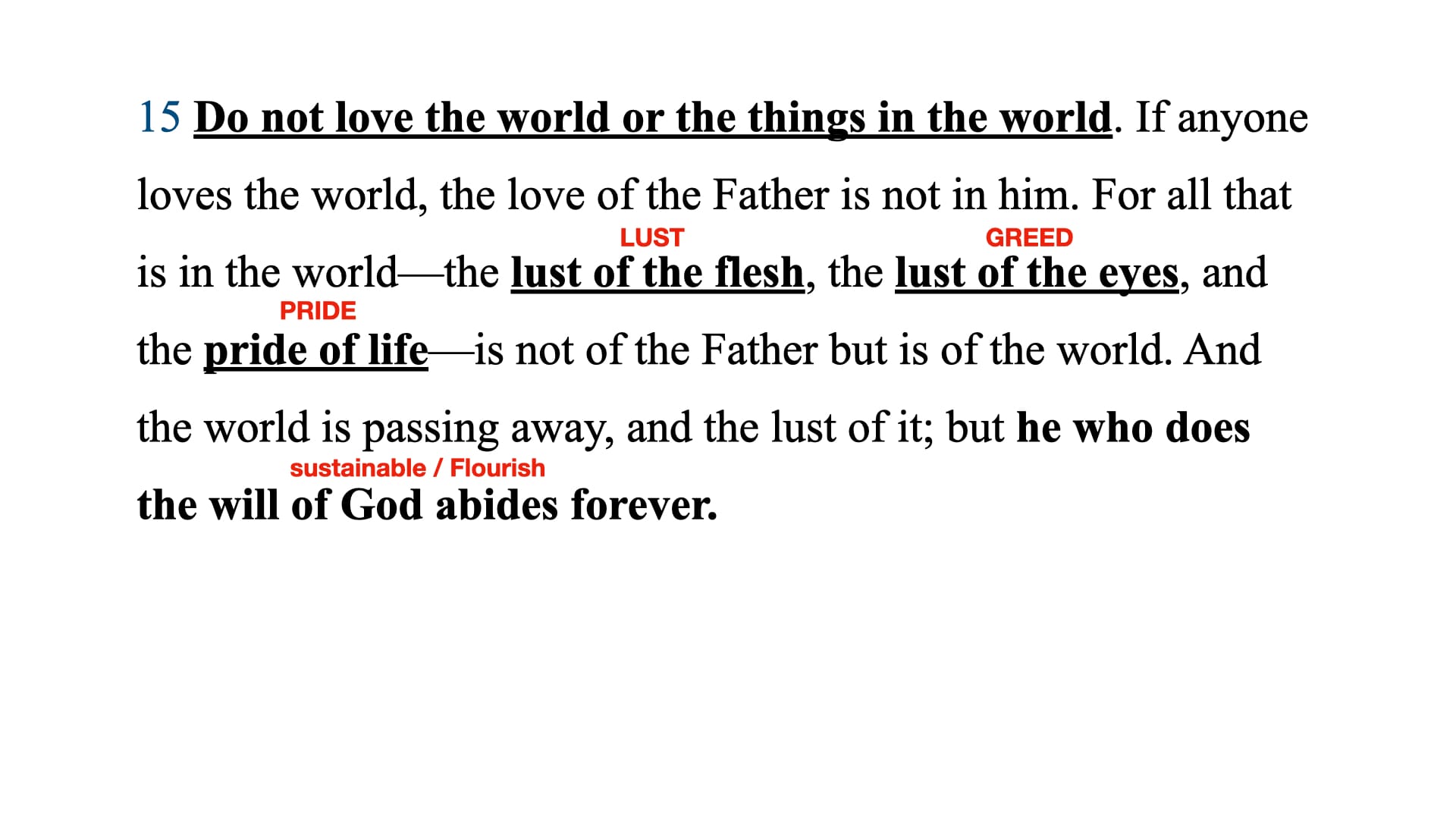
1. LOOSE the WEIGHT of sin
Few verses in the Bible so directly reveal God’s explicit will for us as 1 Thessalonians 4:3: "For this is the will of God, your sanctification." Sanctification is about being holy, set apart, and growing up in the fullness of Christ. The apostle John affirms and echoes these sentiments very clearly in his letter, being even more direct: Whoever has been born of God does not sin... (1 John 3:9) paradoxically balanced with "If we say that we have no sin, we deceive ourselves" (1 John 1:8).
John reveals a deep hidden secret in John 2:1-3. The sentence "so that you may not sin" is written in the Aorist Verb tense, implying that we stopped sinning, are currently not sinning, and will not sin. The fact that there is such an expectation that we ought not to sin is incredible and only possible through supernatural means. As explained in a previous sermon, the NT writers greeted and named the church SAINTS more than 60 times! Peter also emphasises this same high calling:
"But as He who called you is holy, you also be holy in all your conduct, because it is written, 'Be holy, for I am holy.'" (1 Peter 1:15-16)
IF WE DO SIN... As God's Children, we have a righteous and just Advocate (Parakleet). Because Jesus is the Atonement (sacrificial lamb) for our sins and the Priestly Mediator! His atonement is for the WORLD. He is an advocate for His children! Some have used this scripture to affirm universal or inclusive atonement. [1] This teaching emphasizes that Jesus’ death and resurrection have already atoned for the sins of the entire world, and that humanity's primary issue is not sin itself but their lack of awareness or acceptance of this reality. Let’s break this down theologically:
- “God was in Christ reconciling the world to himself, not counting their trespasses against them” (2 Corinthians 5:19).
- “Behold, the Lamb of God, who takes away the sin of the world!” (John 1:29).
- “He is the propitiation for our sins, and not for ours only but also for the sins of the whole world” (1 John 2:2).
Traditional Christian theology teaches that while Jesus’ atonement is sufficient for all, its efficacy applies to those who repent and believe in Him (John 3:16, Romans 10:9-10). The "already-forgiven" view may seem to downplay the necessity of personal faith and repentance. This view might lead to the assumption that people are "saved" simply by default. Critics argue this could lead to complacency or minimize the urgency of repentance and discipleship.
2. Make the Exchange
Realise this! Our sins are already forgiven, but we need to go to the advocate and make the exchange!
What does this practically mean? We do not get forgiven because we confess our sins; we get forgiven because we receive the gift and power of forgiveness!! Sin is a weight. "And He bore the sin of many" Isa 53:12 the verb explains the noun, sin needs to be carried, like a ball on a chain. Sin, like being overweight, restricts movement; one cannot do what the body has been created to do. "let us also lay aside every weight, and the sin which clings so closely, and let us run with endurance the race that is set before us." (Heb 12:1)
In Matthew 9:2-6 we read of this powerful healing: "And behold, they brought to him a paralytic lying on a bed. And when Jesus saw their faith, he said to the paralytic, 'Take heart, my son; your sins are forgiven.'" This man did not even repent, and he was already forgiven! His receiving the Lord's forgiveness gave him the power to get up from being a bedridden paraplegic!
The essential skill to master in the Christian life is to repent daily and, by faith, make the Great Exchange—laying down our old selves and being transformed into His likeness. As we behold Him in worship, we are progressively reformed into His image (2 Corinthians 3:18). Humility is key, for only the humble receive His grace (James 4:6). By faith, we are called to receive His righteousness (2 Corinthians 5:21), our identity as children of God (John 1:12), and every spiritual blessing. The profound truth is that all things spiritual must be received—not earned—through faith, humility, and surrender to His transformative power.
I wrote a song about the GREAT EXCHANGE:
I give you my brokenness. You make me whole.
I give you my tiredness. You give me strength.
I give you my shortfalls. You perfect me.
I give you my sickness. You are my healing.
You are my righteousness, My source of strength.
You are my righteousness, My new life in Christ.
I give you my rejection. You embrace me as your own.
I give you my unbelief. You give me your faith.
I give you my failures. I can do all Things in Christ.
I give you my turbulence. You give me rest.
I give you my blindness. I can see with new eyes.
I give you my weakness. You make it possible.
I give you my sins. You make me holy.
I give you my curse. You bless me richly.
3. Wise Up and OBEY with MEEKNESS
The Gnostics prided themselves on possessing secret divine knowledge that elevated them above others, claiming it made them wiser and the epitome of human excellence. John addresses this ideology decisively, not by denying the value of knowing God but by redefining what it truly means. Knowing God, John asserts, is not about acquiring mystical insights or hidden revelations—it’s about obedience to His commands. True knowledge of God is revealed through a transformed life. Just as an athlete’s disciplined training is evident in their fitness and skill, a believer’s obedience and actions demonstrate their intimate relationship with God for all to see.
The life of Christ must be practised to experience its full benefits. Qualities like forgiveness, patience, generosity, faith, benevolence, kindness, compassion, steadfastness, and goodness should be visible in our lives. While the church has often emphasized the importance of having a relationship with God, it’s crucial to recognize that the relationship itself doesn’t automatically make us just and holy. In reality, doing His will and following His instructions deepen and define that relationship.
The term “commandments” does not refer to the Mosaic Law, with its rules and regulations. Instead, it reflects the dynamic, Spirit-led life described in Romans 8:14: “For as many as are led by the Spirit of God, these are the sons of God.” Like Jesus, who did nothing apart from the Father’s guidance—seeing, hearing, and responding to His leading—we are called to live in complete obedience. To truly flourish in Christ, one must embrace the simplicity of this profound truth: hear and obey. This is the pathway to a life that reflects the character and mission of Christ.
4. Practise EMPATHY
If you're wondering what God instructs us to do—if it’s not the Mosaic list of 613 laws and regulations—John simplifies it profoundly. The command is not new but ancient, timeless, and foundational: “You shall love the Lord your God with all your heart, with all your soul, with all your mind, and with all your strength, and you shall love your neighbor as yourself” (Mark 12:30-31). These two commandments encapsulate the essence of God’s will, calling us to a life defined by wholehearted devotion to Him and selfless love for others. It’s not about a lengthy rulebook but about a transformed heart that reflects His love in every aspect of life.
Andy Stanley explains this principle well in his book: Irresistible: Reclaiming the New that Jesus Unleashed for the World. The Greatest Commandment: Loving God requires an inward transformation of the heart. You can perform all the OT rituals and still not love God or your neighbour! This commandment demands sincere devotion, emotional engagement, and selfless love, which can’t be easily quantified or enforced.
In How to Know a Person: The Art of Seeing Others Deeply and Being Deeply Seen, David Brooks explores the profound impact of genuinely understanding and acknowledging others. He contrasts "Illuminators," who make people feel valued and seen, with "Diminishers," who overlook others' humanity. Brooks emphasizes that genuine human connection requires empathy, active listening, and curiosity, urging readers to engage deeply with those around them to foster meaningful relationships and a more compassionate society.
The real act of, say, building a friendship or creating a community involves performing a series of small, concrete social actions well: disagreeing without poisoning the relationship; revealing vulnerability at the appropriate pace; being a good listener; knowing how to end a conversation gracefully; knowing how to ask for and offer forgiveness; knowing how to let someone down without breaking their heart; knowing how to sit with someone who is suffering; knowing how to host a gathering where everyone feels embraced; knowing how to see things from another’s point of view.
The only GIFT the church can give this world is HIS LOVE!!!!
5. Abide in the SPIRIT
Finally, the most important and practical truth is this: He makes it all possible for us. As Paul declares in Galatians 5:16-18: “I say then: Walk in the Spirit, and you shall not fulfill the lust of the flesh. For the flesh lusts against the Spirit, and the Spirit against the flesh; and these are contrary to one another, so that you do not do the things that you wish. But if you are led by the Spirit, you are not under the law.”
This is the key to living a victorious and Spirit-filled life. By walking in the Spirit—remaining attuned to His guidance and power—we are empowered to overcome the desires of the flesh and live in alignment with God’s will. It’s not by striving in our own strength but by yielding to the Spirit that we can truly flourish and experience freedom from the constraints of the law.
We cannot LOVE the things of the World and be filled with the Spirit! When one is filled with the Holy Spirit, all the lure of the world loses its power on us! This last verse in this passage reveals the ultimate victory of all the power of Satan and the World. For all that is in the world—the lust of the flesh, the lust of the eyes, and the pride of life—is not of the Father but is of the world. And the world is passing away, and the lust of it; but he who does the will of God abides forever. (1 John 2:15)
Throughout history, great philosophers have echoed the biblical insight found in 1 John 2:16, which identifies the lust of the flesh, the lust of the eyes, and the pride of life as the core drivers of human behaviour. Plato spoke of the soul’s struggle against base appetites, while Aristotle addressed desires (hedonistic pleasures) and vainglory as threats to virtue. Stoics like Epictetus and Marcus Aurelius warned against enslavement to sensuality and external possessions, emphasizing rational mastery over transient passions. Augustine, deeply influenced by Christian thought, framed these desires as disordered loves that pull humanity away from God. Even secular thinkers like Schopenhauer and Nietzsche acknowledged humanity’s relentless pursuit of sensual pleasure, material greed, and self-aggrandizement as defining but ultimately destructive forces. Across cultures and eras, philosophers have recognized these three forces as the root of human striving, conflict, and dissatisfaction.
What is the biblical answer and solution? But he who does the will of God abides forever!!!
LET US THRIVE IN 2025!
[1] Carlton Pearson, a prominent Pentecostal minister who became controversial for his teachings on inclusive atonement, often referred to as the "Gospel of Inclusion." Pearson asserted that Christ's atonement was universal, meaning that all people are already saved and that there is no eternal hell. This departure from traditional evangelical doctrine led to his ostracization from the Pentecostal community. Pearson's life and theological journey were depicted in the 2018 film Come Sunday, directed by Joshua Marston and starring Chiwetel Ejiofor as Pearson.

